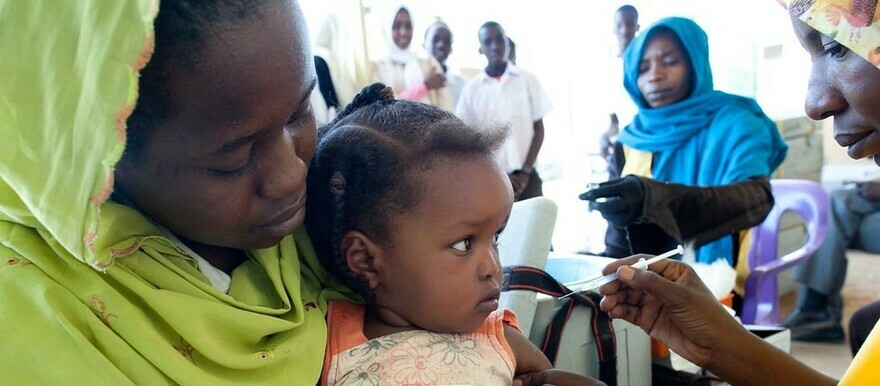Thousands of children in Central Darfur state are grappling with a dire shortage of vaccines for childhood diseases. The aftermath of war has led to the destruction and looting of the strategic stock of serums stored by the Immunization Department.
Ayina Al-Daw, the administrative director of Zalingei Teaching Hospital, told Radio Tamazuj Wednesday that the state is experiencing a severe deficit of vaccination serums for both children and women. Some vaccines are reportedly being sold on the black market after expiration and under inappropriate storage conditions, violating Ministry of Health regulations and posing a threat to those who use them.
Ayina highlighted the deteriorating health conditions of patients with Human Immunodeficiency Virus (HIV) –Acquired Immune Deficiency Syndrome (AIDS) due to the unavailability of essential drugs. Unfortunately, these patients are succumbing to their health decline as the hospital faces a shortage of medications.
The health official confirmed to Radio Tamazuj that the state has not received any supplementary doses from either the government or organizations, exacerbating the healthcare crisis in the region.
“Despite efforts by certain individuals to resolve the issue by importing serums from North Darfur state, these attempts have been unsuccessful. This is concerning, especially with the rising cases of illnesses among children, including measles, polio, and tetanus,” explained Ayina.
Ibtisam Shareef, an immunization professional, highlighted that the available vaccines only address the requirements for polio and meningitis. Despite attempts by representatives of the Ministry of Health in White Nile State to address the shortfall, their efforts proved unsuccessful. Shareef emphasized the critical need to secure the remaining vaccines to prevent a potential disaster.
Expressing regret over the lack of vaccinations, Nafisa Adam underscored its utmost importance. This situation has led some families to travel to neighbouring Chad or nearby states to ensure their children receive the necessary vaccinations.
Adam appealed to national and international medical organizations to expedite the provision of vaccines, particularly emphasizing the urgency of the tuberculosis vaccine, which she considered the most psychologically threatening to children.




